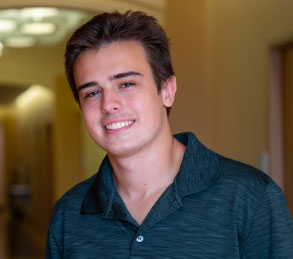Lab Resources
The Lab Theatre has been created in response to student demands for more student-conceived performance and process. Lab theatres have a rich history in more than 100 famous theatre schools across the country. Often the most exciting performance work is done in lab theatre. Columbia University, UNC Greensboro, and UNC-Chapel Hill are examples of programs that offer lab theatres. The emphasis is on student process and performance.
The lab provides students with opportunities to create, rehearse, and perform student-driven performance projects. It is a place for passion, for stretching, for trying something new. It can also be a great chance to do cuttings from classical or traditional favorites. For example, you may do a range of pieces such as an originally written piece, comic improvisation, or a cutting from Romeo and Juliet. You may do a group piece or solo piece. Work for the lab theatre may focus on directing, acting, writing, movement, and/or improvisation. It may be a design tech demonstration with limits set in conjunction with John Saari. It may be generated by an actor, choreographer, director, playwright, or technician. Production elements for lab theatre are extremely minimal and therefore do not require production teams or budget. The focus is on the quality and yield of the artistic process: creation, acting, writing, performance, directing, and collaboration.
There is no “tech week,” design team, or running crew. Lab allows the students to focus completely on telling the story through solid interpretation, clear choices, and a good, strong process. The lab format allows a great number of pieces to be performed and a great range of pieces. Supervision and input from faculty is supportive and minimal.
In addition to the obvious artistic experience of lab, lab prepares young directors for work with design elements in Student Stuff or a main-stage season by first allowing directors to work with interpretation, performance and process before adding design and tech. It is also a resume item. Lab theatres are common in well-known acting programs, particularly grad programs. Lab pieces listed on a resume demonstrate one’s self-motivation, versatility, and ability to collaborate with peers. Lab allows students to let faculty know what their potential is, which may help the faculty in choosing and casting plays in the future. Most of all, lab also allows students to perform their passion and extend the variety of experiences that they have at GC.
Submission
- A lab piece could be from any genre: it could be a cutting from a full length play, a movement piece, a staged reading of a new play, an improvisation group, a one person show, etc. It could also be a tech or design demonstration with perimeters set by John Saari.
- Pieces are submitted to the faculty lab coordinator by the lab deadline on theatre department calendar.
- Cast lists and rehearsal schedules are submitted to faculty coordinator no less than two weeks in advance of performance.
- Each piece must have a “director,” or project leader. An actor(s) who chooses a piece to perform must find a “director,” or act as a project leader. A technician doing a presentation may be his own project leader. A choreographer may be a director, etc. The director or project leader is the contact person for the faculty and the lab technician.
- The piece may be 20 minutes in length but no longer unless approved in advance.
- We will find a spot for each piece. In the case of overflow, pieces are scheduled on a first come first serve basis. Robin will give approval to projects as submissions come in.
Technical Aspects
Technical provisions for lab performances are minimal.
- A stock of basic furniture and props will be provided for lab. If a special prop is needed the director may make a request from the lab coordinator. The director decides which furniture and props will be used and requests special props as needed.
- The lab is provided with a general lighting plot which will be used for every lab performance. The lights may be faded up or down as needed. If there is a specific need for the production, a director may ask the lab technician.
- Costumes may be signed out of the costume shop by the actor wearing the costume. Costumes are not substantially changed for lab performance. An actor may use their own clothing as costume pieces. The actor must get permission from Kay Phelps or her assigned assistant to borrow a specific costume.
- All costumes and “special request” props are returned by the Monday after the lab production.
Use of Parlor
Each group may use any entering point in Parlor Theatre and may arrange props and furniture in the space in any way. The walls, floor, and all painted surfaces remain black in order to provide a versatile space for a variety of pieces. After rehearsals, Parlor must be left clean – trash must be thrown away, stock props must be returned to space behind Parlor, and special hand props must be locked away or stored in a dorm room by group after rehearsal. Although Main Building is locked at night, valuable personal items should be taken home after rehearsal to insure their safety.
Auditions and Rehearsals
- Each lab piece is provided with no more than a twenty hour rehearsal process. The rehearsal schedule is turned in no less than two weeks prior to the lab performance. Rehearsal schedules for lab must take classes and main stage rehearsals into account. Rehearsals for lab must end by 11:00 pm.
- The cast may be assembled according to the preferences of the group. If auditions are held, an audition sheet must be posted, and a script must be made available. If a role is pre-cast, that information must be listed on the audition sheet. If all roles are pre cast, auditions are not necessary. An actor(s) may be the driving force behind a lab piece and may ask other actors to join them.
- A director may ask another theatre student to assistant direct and provide help during off book nights or to start the tape player for sound cues as needed.
Lab Technician
A student lab technician is assigned by John Saari to the lab theatre. The lab technician will coordinate with the director and attend one rehearsal in the week before lab and will receive instructions from each director for lights up and lights down. The lab technician may run a few sound cues as the director requests. Prior to the arrival of the technician, directors and assistant directors should use a tape or CD player and rehearsal lights for rehearsal.
Feedback
Faculty will hold brief question and answer format feedback sessions with theatre students immediately following the performance. The rest of the department will remain to observe and participate in the feedback session. We will learn how the process went for the group, whether their goals were achieved according to the goals they set for themselves and brief faculty feedback.
Faculty Supervision
The group or the director of the group must post a rehearsal schedule on the kiosk and must turn a schedule in to the lab coordinator and theatre faculty. Each lab piece will be viewed in rehearsal by a faculty member or by a directing student assigned to view the piece. In order to rehearse in Parlor, the director signs out the space on sign-out sheet located by lab coordinator’s door.

